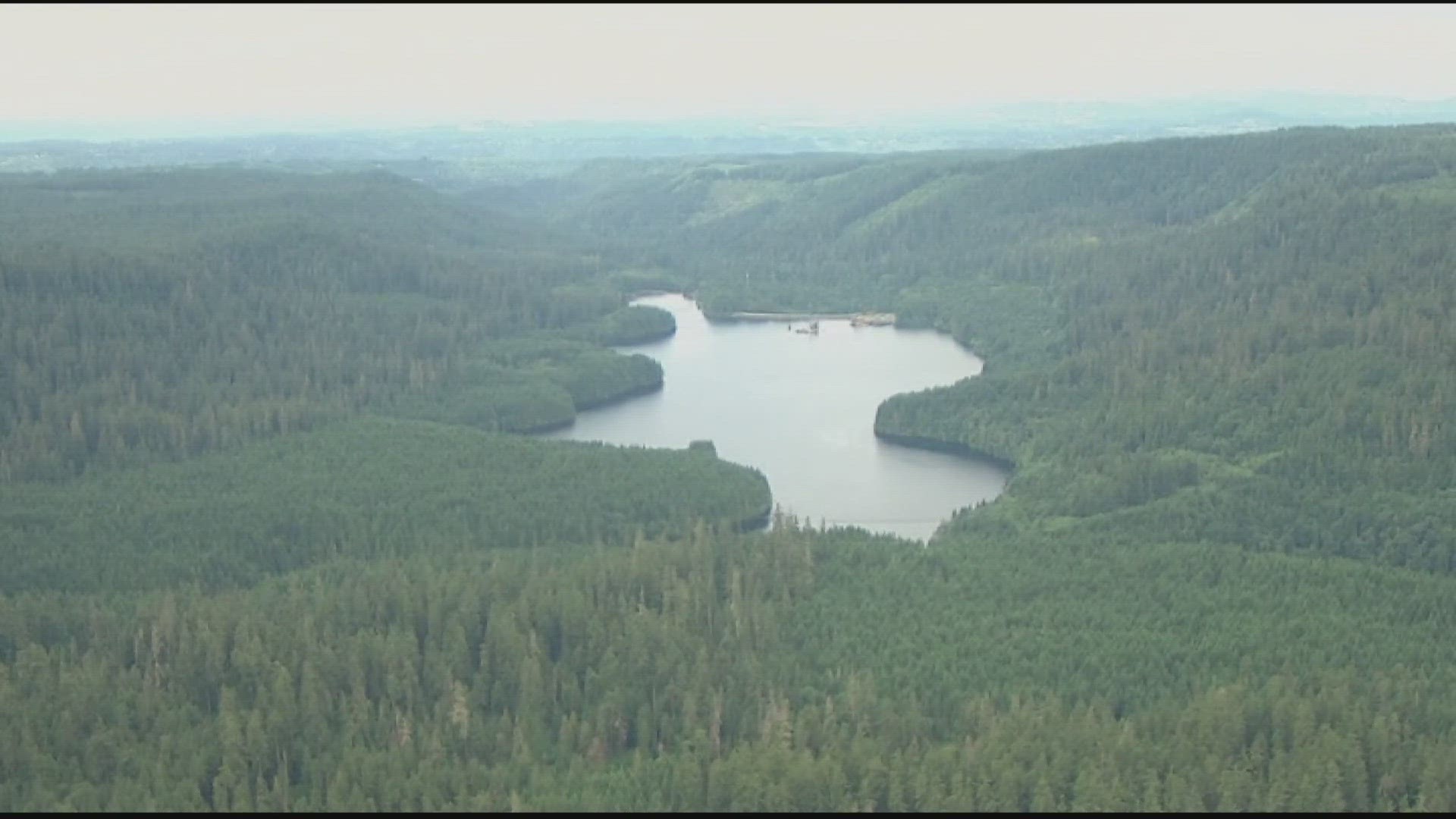PORTLAND, Ore. —
The water from the Bull Run watershed, Portland’s primary source of drinking water, remains safe to drink, officials said Monday.
That’s despite a 1,600-acre wildfire burning within a few miles of the city's two main reservoirs and an important treatment facility.
"The fire is still about a mile and half or so from reservoir 2 and just about three miles from our headworks facility," said Scott Bradway, water quality information manager with the Portland Water Bureau. "Our water is and continues to be safe to drink."
The Camp Creek fire, which was sparked by lightning on Thursday, was burning through thick vegetation and old-growth forest, according to U.S. Forest Service Section Chief Matt Call.
The fire grew mainly to the south and west over the weekend due to warm and dry weather conditions, and Call said crews were well aware of importance of the watershed.
"Our number one priority for this is the water treatment facility and the watershed area," Call said, noting that there had been a significant shift in the weather on Monday with lower temperatures, higher humidity and a chance of rain over the fire. "The moisture is going to slow the fire down quite a bit, but it's not going to put it out. We have a lot of fuel out here, a lot of old growth trees, a lot of organic material that is several feet deep."
Bradway said that staff were still working at the headworks, where water is initially treated before it makes its way into the distribution system. But if the facility needed to be evacuated, the city has a backup plan.
"Here in Portland we're fortunate," he said. "We've got two high quality sources of drinking water; Bull Run and our Columbia South Shore Well Field."
The well field, which has 25 wells that draw from aquifers under the city, is already in use. The bureau began pulling up groundwater last week due to the hot dry summer, which left the Bull Run reservoirs low for this time of year.
The well field is capable of delivering up to 95 million gallons of water per day, Bradway said. That’s a bit short of the 125 million gallons per day Portlanders use at the height of summer.
"We cannot meet all our system demands in the summertime with our groundwater capacity," he said "That is one of our concerns now with this fire, is that if we were to have to evacuate the Bull Run treatment facility, we would need to turn off the Bull Run because it would be untreated water."
In that scenario, which is still unlikely at this point, the water bureau could call on other water districts to seek alternative water sources or ask customers to limit their water use.
"Those are things we’re preparing for," Bradway said. “We're not there yet, we’re not asking anybody to reduce their water use now, but those are things we’re prepared to do."
Bradway added that any impacts were more likely to show up when winter rains arrive.
"When the forest burns, it exposes a lot of soil and there's also ash on the ground there," he said. "When you get rains, you can get more material washing into the reservoirs."
That's another situation where the city is lucky to have the well field as an alternative source of drinking water.
"It acts as a great backup to our Bull Run supply," Bradway said.

